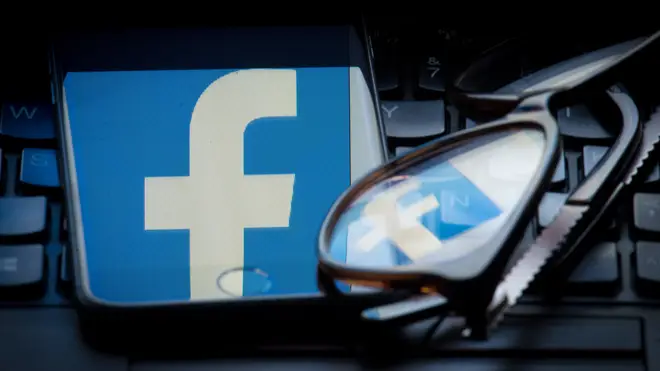
Nick Ferrari 7am - 10am
16 March 2022, 06:04

Rhiannon-Faye McDonald has written an open letter to the social media giant outlining her concerns about end-to-end encryption.
A campaigner who was sexually abused as a child after being groomed online has urged Facebook to abandon plans she says will weaken protections for vulnerable people and give predators “free rein” to target youngsters.
Rhiannon-Faye McDonald cited her own experience of being preyed upon by an online abuser in an open letter to Mark Zuckerberg, boss of the social media giant.
Facebook has announced plans to introduce end-to-end encryption – so messages can only be accessed and read by the sender and recipient – across the rest of its app messaging platforms by 2023, prompting concerns from campaigners that police and Facebook will not be able to flag harmful or worrying content.
But others say added security is fundamental to protecting personal data.
In her letter, Miss McDonald, who waived her right to anonymity, wrote: “Please don’t turn the lights out on your ability to detect child sex abuse. Your company employs some of the world’s brightest minds and we hope that you will harness that expertise to prioritise finding a solution that protects privacy while not putting children in danger.”
The 32-year-old told the PA news agency: “For me, end-to-end encryption is a really big concern… and I think this perspective from victims and survivors has really been missing from this debate.”

Miss McDonald was 13 when she began chatting with a sexual predator posing as a teenage girl, who later persuaded her to send a topless photograph in order to get work as a model.
Within 24 hours, the man, who said he was the girl’s boss, turned up at Miss McDonald’s family home and sexually assaulted her.
Miss McDonald did not tell anybody about what happened, but was contacted by police six months later when they were investigating crimes involving another victim.
Miss McDonald said she is not against the idea of end-to-end encryption, but that she wants safeguards to be put in place effectively meaning Facebook can continue to flag harmful material.
She said: “For me, the biggest concern is that perpetrators are going to be given a place of free rein, they’re going to have places online where they can operate and identify, groom and abuse children where they aren’t going to be caught.
“And there’s nobody that can see what’s happening to step in and identify vulnerable children and prevent them being harmed.”
Miss McDonald said she continues to be affected by her ordeal, nearly two decades on.
“There are images of my sexual abuse when I was 13, they exist. I don’t know where they are, I don’t know who’s seen them, I don’t know if they are online. I can’t control them, and I never will be able to control them,” she said.
“And knowing that tech companies have means to detect known child sexual abuse images and remove them is a comfort.”
She praised Facebook for “doing really good work” in reporting child sex abuse material, but warned the company faces taking “backwards steps” and “closing their eyes to abuse” if it introduces end-to-end encryption.
She added: “Every time an image is viewed, the child that is in that image is re-victimised and re-traumatised.
“So I still walk down the street sometimes, and look at people and wonder ‘Have you seen images of me? Do you recognise me from an image that you’ve looked up?’
“It is hugely damaging, the impact of these images. We have a tool that helps us to fight that problem, and end-to-end encryption is going to remove that from our hands.
“So the letter for me is about appealing to Mark Zuckerberg to consider this issue as part of the wider issue around end-to-end encryption, and not to introduce end-to-end encryption until there’s the right safeguards in place to ensure that children can’t be harmed.”